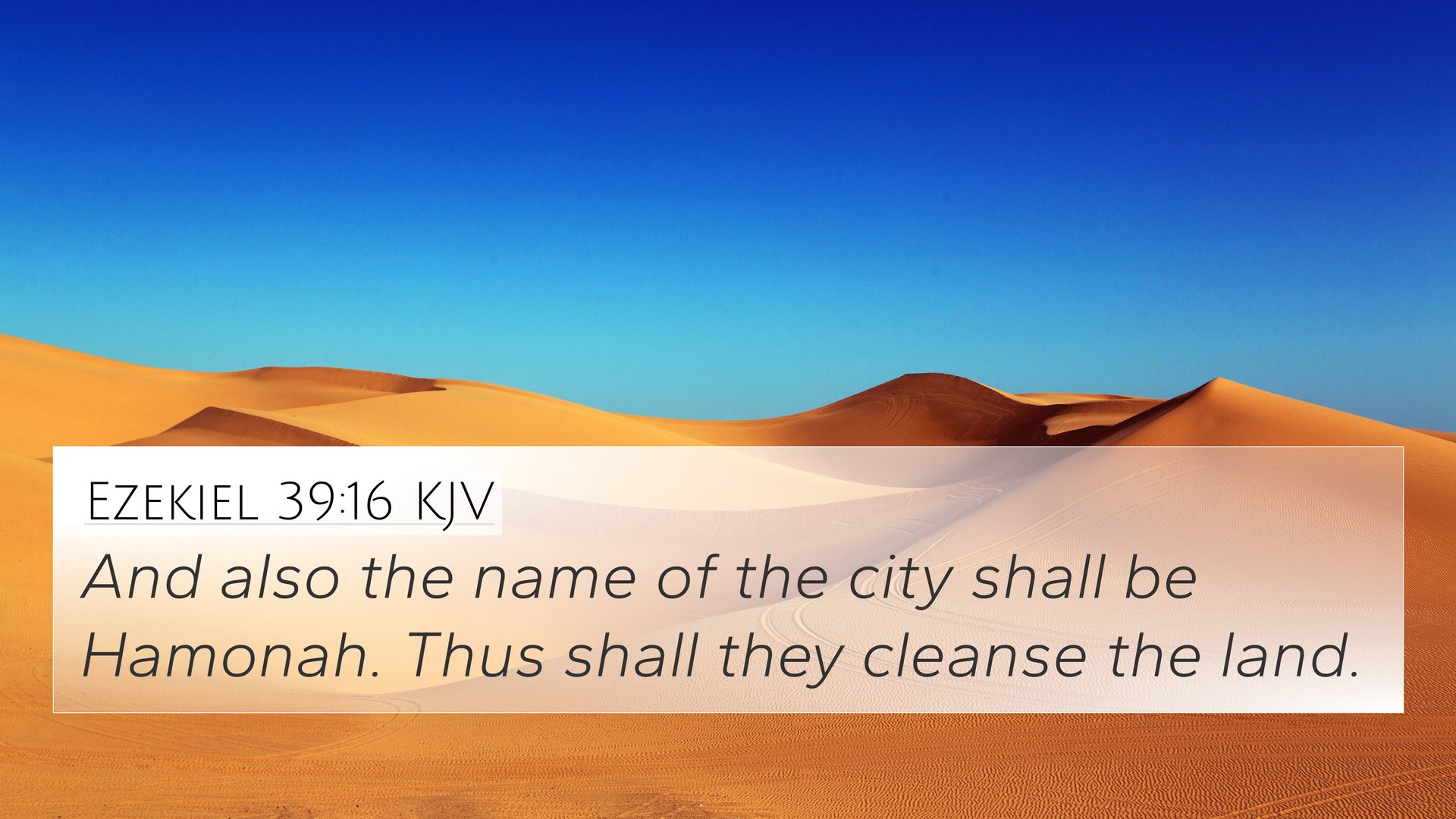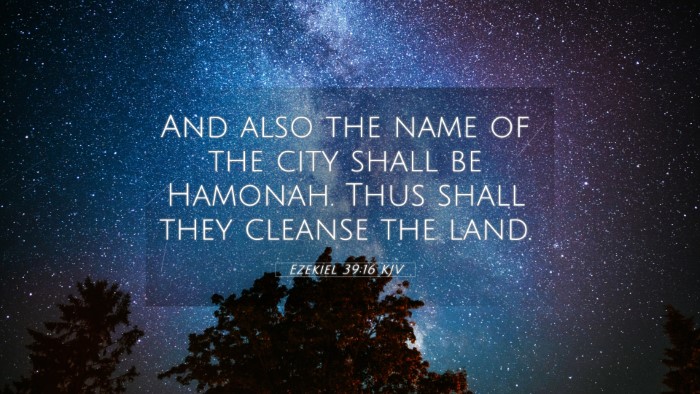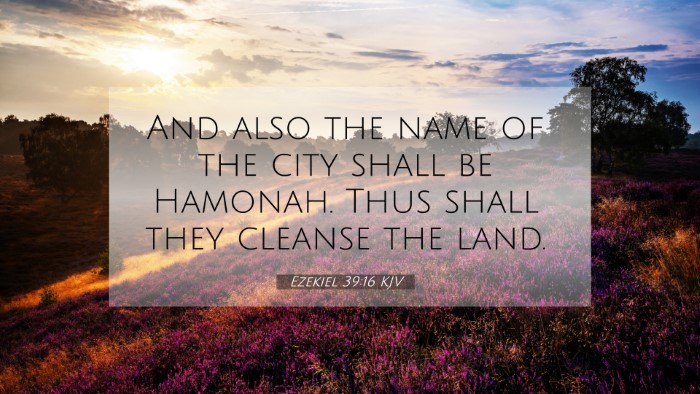Ezekiel 39:16 - Understanding the Verse
Ezekiel 39:16 states: "And also the name of the city shall be Hamonah. Thus shall they cleanse the land." This verse follows a prophetic declaration regarding the aftermath of a great battle and God's intervention. The mention of the city, Hamonah, symbolizes a place of significant change and restoration.
Meaning and Interpretation
The insights provided by various commentaries on Ezekiel 39:16 highlight multiple layers of meaning:
-
Restoration and Cleansing:
Matthew Henry notes that the naming of Hamonah serves as a declaration of God's power to cleanse and restore His people after judgment. This indicates a fresh start for Israel after the turmoil.
-
Symbolic Significance:
Albert Barnes emphasizes the significance of renaming and its role in establishing a new identity for the people. The name "Hamonah" suggests gathering or multitude, symbolizing the regathering of Israel.
-
God’s Sovereignty:
Adam Clarke explains that God's action in cleansing the land is a reflection of His sovereignty. This reinforces the biblical theme that God is actively involved in the restoration of creation and His covenant people.
Contextual Analysis
The context of Ezekiel 39 is crucial for understanding its implications:
-
Prophetic Fulfillment:
This chapter deals with the end-time prophecy concerning Gog and Magog, illustrating God's ultimate victory over adversaries of His people.
-
Theme of Divine Judgment:
Judgment is a recurring theme throughout the book of Ezekiel, revealing God's commitment to justice and holiness.
-
Hope for Restoration:
Despite the dire judgments, the prophetic messages include hope and restoration for the exiled Israelites, showcasing God's unwavering covenant love.
Bible Cross References
Several Bible verses relate to Ezekiel 39:16, which can aid in the comparative study of biblical themes and connections:
- Isaiah 66:24: The imagery of cleansing after God's judgment parallels the themes of both restoration and remembrance of past transgressions.
- Joel 3:21: God's justice and the vindication of His people resonate with Ezekiel’s themes of renewal and divine intervention.
- Jeremiah 30:18: The promise of restoration to the cities of Israel connects to the idea of cleansing the land.
- Matthew 5:5: The concept of the meek inheriting the earth can be seen as a prophetic echo of God's promises of land and peace to His people.
- Revelation 21:1-2: The imagery of a new heaven and earth finds connections with the renewal expressed in Ezekiel.
- Ezekiel 36:25-27: The promise of a new spirit and a cleansing of the heart directly impacts the understanding of God’s restorative work.
- Romans 11:26: The salvation of all Israel, referring to God’s enduring promise to His people, illustrates the thematic continuity.
Comparative Themes
Ezekiel 39:16 serves not only as a standalone proclamation but ties into broader biblical themes:
-
Thematic Connections:
The themes of cleansing, renewal, and divine restoration found in this verse connect gracefully with various prophetic writings across the Scriptures.
-
Scriptural Cross-Referencing:
Tools such as a Bible concordance can aid in linking these scriptures effectively, revealing profound inter-Biblical dialogues.
-
Long-Tail Keywords Exploration:
Readers may explore topics such as "How to find cross-references in the Bible" or "Identifying connections between Old and New Testament" to deepen their understanding.
Conclusion
Ezekiel 39:16 encapsulates a powerful message of hope and restoration grounded in God's sovereignty. Understanding this verse within its broader biblical context, coupled with tools for Bible cross-referencing, enhances our appreciation of the interconnectedness of Scripture. The rich tapestry of biblical themes invites us to reflect on how these ancient texts continue to resonate today.


